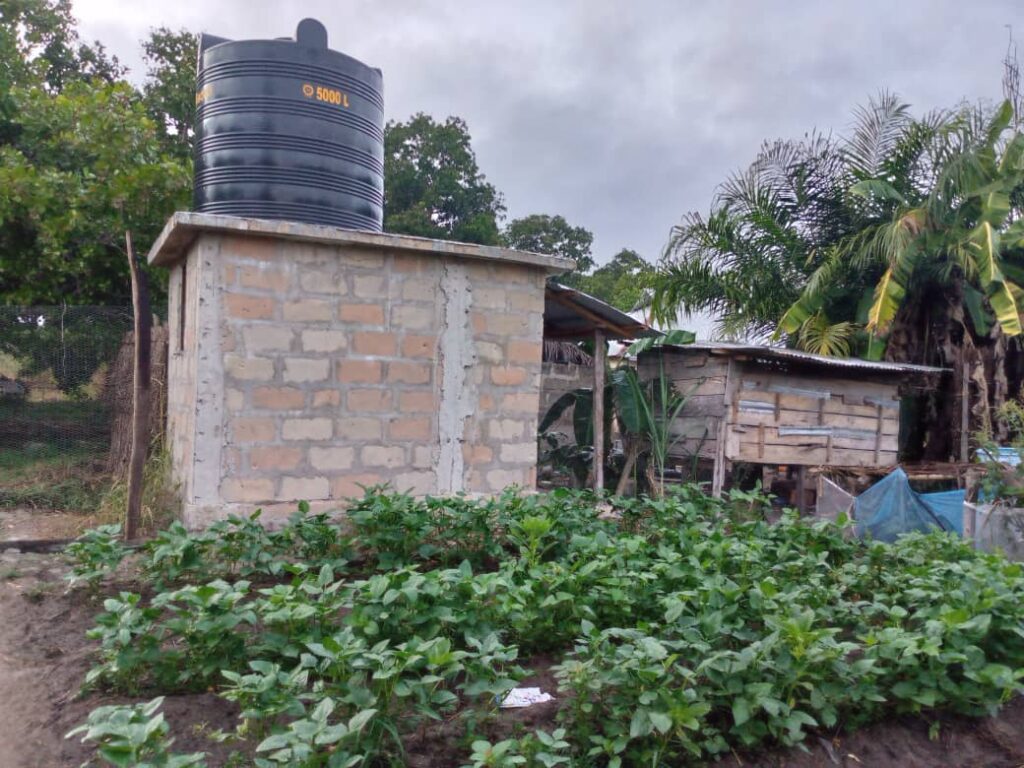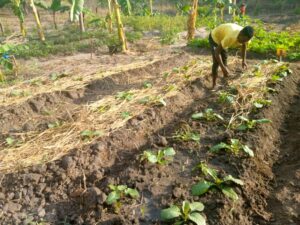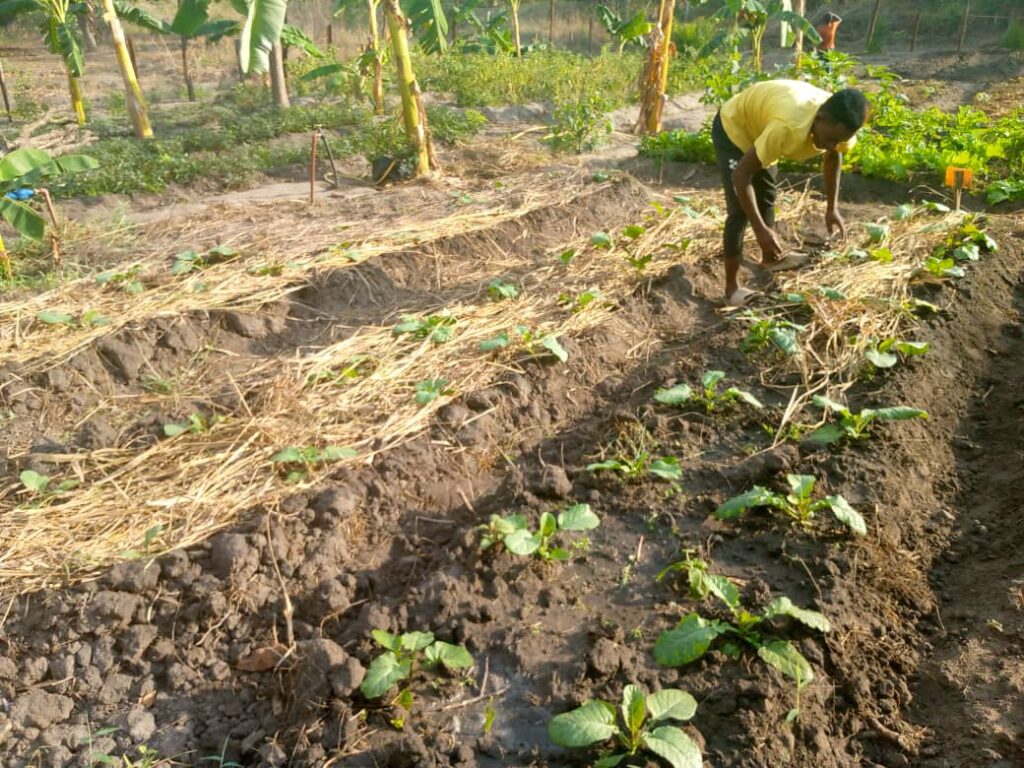Utete, TZ – KCM garden improvements raises harvests to benefit the community – Aug 2024
KCM garden improvements have raised the garden harvest to 14 Kgs per day for feeding special needy groups in the community. 7 Kgs feeds kindergarten children, 4 Kgs feeds lepers, and 3 Kgs feeds volunteer families.
We are grateful to Better Lives, True Adventures and UK schools for assisting us in fencing our garden to prevent destruction by domestic animals, and for fund raising for the material costs. The fence makes us proud of the excellent garden with its rotation of a variety of vegetables, which feed the soil and produce sustainable harvests for serving breakfast to the children and the needy community families.

We have also been assisted with a water storage solution, by building a water stand store room supporting a 5,000 liter tank to store water for irrigating during times of water scarcity, which is caused by occasional maintenance and extension work on the main water pipe infrastructure. The visiting schools also assisted us to purchase five barrels of 200 liters each with a total of 1,000 liters for storing water for the volunteer hosts use, which can also be used for gardening when we have no visitors.
The new water tank stand store room is for gardening equipment like tools, seeds, spray pump, and has a covered porch, which will be used for meetings to plan the weekly garden operation targets, and for organic knowledge sharing and improvement idea discussions. These improvements are contributing to a productive organic garden for the sustainable serving of breakfast to the community families and school children.
KCM shows examples of quality garden best practices to the community, and its team is focused on assisting four schools with gardening knowledge so that they can qualify for fences to prevent the encroachment of neighboring families’ domestic animals. The fences will enable the schools to protect and operate the garden by delivering a sustainable harvest for the school breakfast and earn income by selling surplus vegetables and bananas to cover program expenses, so that the program can be self-sustaining.


